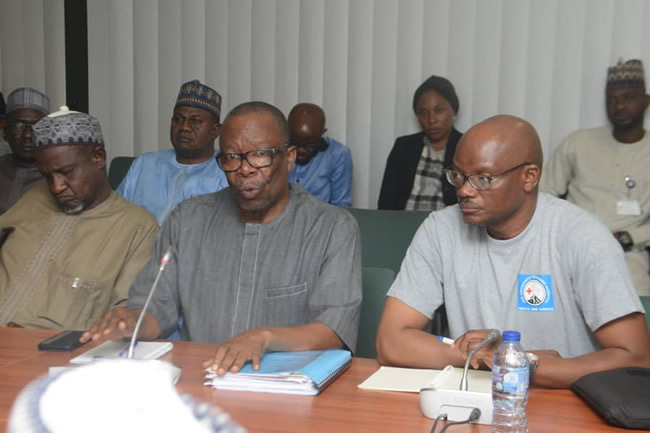ASUU has rejected new university governing councils again.
NewsOnline Nigeria reports that the Academic Staff Union of Universities (ASUU) has voiced disappointment regarding the composition of the newly constituted governing councils for federal universities across Nigeria.
This Nigeria news platform understands that ASUU’s national president, Prof Emmanuel Osodeke, expressed these concerns in a recent interview with the Nigerian Tribune, highlighting a worrying trend in the appointment process.
According to Prof Osodeke, the new list of council members is dominated by retired politicians rather than experts in academia or relevant fields.
ALSO: Presidency Says Tinubu Inherited Dead Economy From Buhari
“Most of them are retired politicians. They are honourable this and honourable that,” Osodeke remarked, questioning the suitability of such appointments for the strategic development of higher education institutions in the country.
Prof Osodeke further criticized the new list as being worse than its predecessor, indicating a regression rather than progress in the appointment policies.
“Go and look at the list again, you will see that most of them are retired politicians. That is how terrible the thing has become,” he lamented.
ASUU also raised issues beyond the qualifications of the appointed individuals. The union pointed out that the formation of new councils was procedurally flawed and possibly illegal.
The Federal Government had dissolved the previous councils over ten months ago before their tenures had expired, contrary to the stipulations of the University Act.
ASUU argued that these members should have been allowed to complete their terms instead of assembling a new council, which seems to overlook legal frameworks.
The union emphasized that university education should not be subject to partisan politics if Nigeria aspires to achieve real educational quality that can lead to economic prosperity.
“We can’t run our universities like this if we truly want genuine development to take place,” Prof Osodeke stated, urging a reevaluation of how university councils are constituted.













